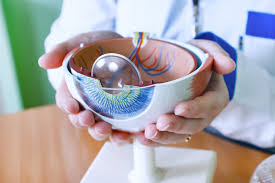As you age, the natural lens in your eye might become cloudy and prevent you from seeing properly. If your sight declines, ophthalmologists perform cataract surgery to remove the damaged lens and replace it with an artificial one. Here are a few ways this medical procedure benefits seniors:
Enhances Sight
When you have cataracts, your lens becomes yellow and cloudy, which means you might not be able to see things clearly. During cataract surgery, your care provider removes the deteriorated lens and places an intraocular lens that allows light to pass through the eye easily.
After the procedure, blurry things may become clearer because your aging lens has been replaced. Cataracts make it difficult to distinguish different colors, so once the operation is complete, you may be able to identify colors more easily. You can also see shades, steps, and objects more clearly as you walk, allowing you to move without difficulties.
Minimizes Injuries
For some seniors, visual impairment can expose them to the danger of falling because they can’t see where they’re stepping. With surgery, it becomes easier to see the distance between steps on a staircase or cracks and bumps in a sidewalk.
Better vision also allows you to see furniture, pets, or obstacles that may cause you to trip and fall. If the hallway has dim lights, cataract surgery helps to remove hazy vision that may lead to falls. You may also be able to identify sections where the carpet joins the tile more easily.
Increases Independence
Elderly patients with cataracts often struggle to perform daily chores, so they rely on loved ones and caregivers for assistance. Once you undergo a procedure to improve your sight, reading books or managing medications may become easier.
Another activity you can do is drive around at night or during the day to visit friends or go shopping. Being able to see well offers you a chance to cook your favorite meals and clean your home without requiring outside assistance. If you love the outdoors, better sight lets you navigate sidewalks and curbs on your own.
Reduces Dependence
Before your procedure, an eye specialist will examine you to determine whether you need multifocal or toric lenses. With this form of treatment, the need to wear glasses to see short or long distances is reduced. This means you don’t have to carry many pairs of prescription glasses and switch them to see properly.
Since corrective eyewear can be uncomfortable due to pressure on the nose, having your lenses replaced can alleviate the discomfort. Certain types of artificial lenses manage distorted vision, meaning you may not need glasses after your operation.
Make an Appointment for Cataract Surgery
If you find that you need more light to read, see halos at night, or struggle with poor vision, you may have cataracts. An eye care specialist can examine you to determine how clouded your lenses are and prepare you for the procedure. To improve your vision, contact a trusted clinic today to schedule a surgery appointment.
Related Articles
How Mental Health Awareness Can Break Stigma in Society
Common At-Home Treatments for Neck Pain
The Importance of Physical Activity in Long-Term Weight Loss





